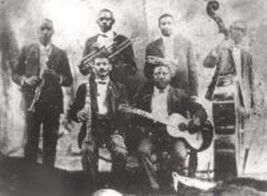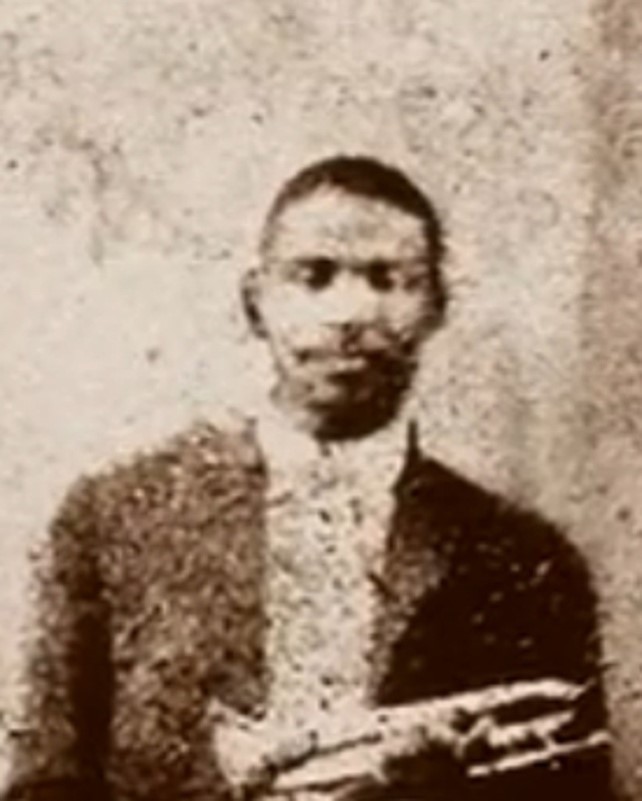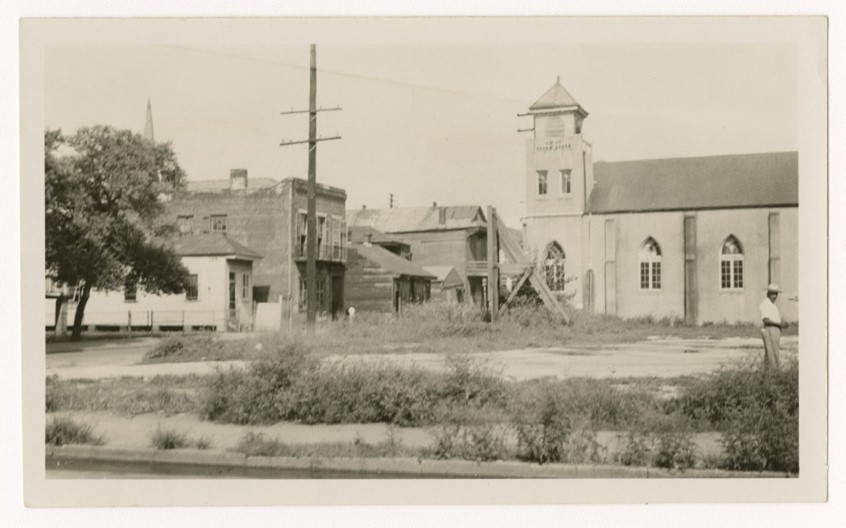
The Big Noise
Among the African American musicians, Charles "Buddy" Bolden (1877-1931)-often called "King Bolden"-started the Big Noise in Jazz. Observers claimed that, on a quiet night, you could hear Bolden's horn playing from twelve miles away. His brilliant tone and constant improvisation were hallmarks of his style. Bolden did not call the music that he played "jazz" because that term had not come into everyday use yet; instead, he and other early performers of this style called their music "ragtime." Bolden played less structured music than ragtime, though, because his music contained more improvisation and more elements of the blues (such as blue notes) than authentic ragtime music did. Plagued by schizophrenia and alcoholism, Bolden spent his last twenty-four years in a mental institution and never played his instrument again after 1907. Bolden supposedly recorded several cylindrical discs of his playing, but none of them survives.
Bolden invented the beat that we call the Big Four (Burns 2001). The Big Four happens when you accent the fourth beat every other bar in a march.
In the video "Big Four Lesson with Mission Bay Music", Malachi demonstrates the Big Four on the drums. This beat is used frequently in New Orleans Jazz. It gives emphasis to the fourth beat every other bar, as in the music example above.

Big Four Lesson with Mission Bay Music [ 00:00-00:00 ]
Bolden formed his own group in 1895. During the next decade, he built a loyal following, entertaining dancers throughout the city, especially at Funky Butt Hall, which also doubled as a church, and at Johnson and Lincoln Parks. View the video "Tricentennial Music Moment: Funky Butt Hall:"

Tricentennial Music Moment: Funky Butt Hall
The legend of his life and music continues to cast a long shadow on the streets of old New Orleans. "Bolden had a moan in his coronet just like you were in church or something" (Burns 2001). By 1906, Buddy Bolden had become the best-known Black musician in New Orleans. (Burns 2001)

Buddy Bolden's Band
Wynton Marsalis
Jazz music is the power of now. There is no script. It's conversation. The emotion is given to you by musicians as they make split-second decisions to fulfil what they feel the moment requires.
Louis Armstrong
Very few of the men whose names have become great in the early pioneering of jazz and of swing were trained in music at all. They were born musicians: they felt their music and played by ear and memory. That was the way it was with the great Dixieland Five.








